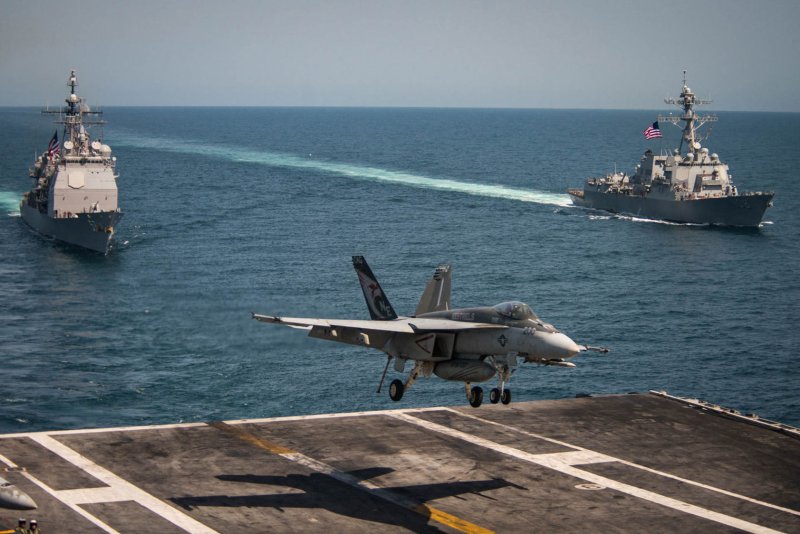June 28 (UPI) -- Boeing has been awarded a $1.5 billion contract by the U.S. Navy for the production and delivery of 22 F/A-18E and six F/A-18F Super Hornets for the government of Kuwait.
The deal, announced Wednesday by the Department of Defense, comes under the terms of a fixed-price-incentive-firm contract.















